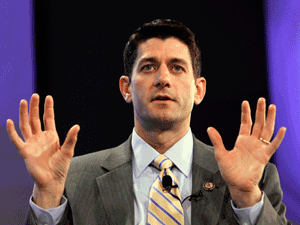



- Viagra
- Sildenafil Citrate (TP)
- Sildenafil Citrate TEVA
- Tadalafil TEVA
- Tadalafil ACCORD
- Tadalafil DAILY
- Vardenafil TEVA
- Vardenafil ZYDUS
- Sildenafil Citrate (GS)
- Cialis
|
Senate Rejects Plan to Privatize Medicare
2011-05-31
|
Senate Rejects Plan to Privatize Medicare
May 26, 2011 — A House Republican budget proposal that would privatize Medicare suffered defeat in the Democratic-controlled Senate yesterday.
The 40 to 57 vote is one more sign of gathering support for preserving Medicare as a classic entitlement program. The day before the vote, Democrat Kathy Hochul won a special election in New York's 26th Congressional district — a Republican enclave — in large measure by running against the GOP plan to have seniors buy private health insurance policies with federal subsidies. Her Republican opponent, Jane Corwin, had supported this approach.
Several recent polls show clear majorities wanting to maintain the Medicare status quo, as opposed to privatizing the program, although other polls suggest public opinion is either evenly divided or tilting toward the GOP solution. On a related note, a poll conducted earlier this month by the Associated Press and GfK Roper Public Affairs and Corporate Communications reports that 54% of Americans believe the federal budget can be balanced without cutting Medicare expenditures.
 |
|
Rep. Paul Ryan. AP Photo/Jacquelyn Martin
|
In yesterday's Senate vote, 5 Republicans joined 52 Democrats in voting against a motion to consider the Republican budget proposal, crafted by Rep. Paul Ryan (R-WI), the chair of the House Budget Committee. That plan, which was overwhelmingly approved by the Republican-controlled House in April, would reduce federal outlays by $5.8 trillion relative to current spending policies, and would reduce the federal debt by $4.4 trillion over 10 years.
Ryan's "Path to Prosperity" would achieve some of these savings by giving Medicare beneficiaries who turn 65 years old in 2022 and beyond a premium subsidy to buy health coverage from a private insurer. According to the nonpartisan Congressional Budget Office, this change would amount to cost-shifting and cause seniors to spend 2 to 3 times more on healthcare than they do now. In addition, the eligibility age for Medicare would gradually rise from 65 to 67 years by 2033.
The GOP proposal also would reduce federal contributions to state Medicaid programs by converting them into block grants.





